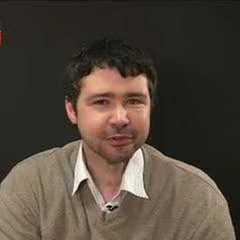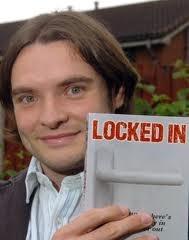William Penn Quotes - Page 5

Benjamin Franklin, William Penn (2012). “Franklin's Way to Wealth and Penn's Maxims”, p.27, Courier Corporation
Passion is the mob of the man, that commits a riot upon his reason.
William Penn (1782). “The Select Works of William Penn....”, p.146
William Penn (1863). “Fruits of solitude in reflections and maxims relating to the conduct of human life”, p.63
We are too careless of posterity; not considering that as they are, so the next generation will be.
Benjamin Franklin, William Penn (2012). “Franklin's Way to Wealth and Penn's Maxims”, p.42, Courier Corporation
If thou thinkest twice before thou speakest once, thou wilt speak twice the better for it.
Benjamin Franklin, William Penn (2012). “Franklin's Way to Wealth and Penn's Maxims”, p.34, Courier Corporation
Inquire often, but judge rarely, and thou wilt not often be mistaken.
1693 Some Fruits of Solitude.
William Penn (1778). “Fruits of Solitude, in Reflections and Maxims Relating to the Conduct of Human Life”, p.49
Benjamin Franklin, William Penn (2012). “Franklin's Way to Wealth and Penn's Maxims”, p.25, Courier Corporation
William Penn (1830). “The Sandy Foundation Shaken; Or, Those ... Doctrines of One God Subsisting in Three Distinct and Separate Persons, the Impossibility of God's Pardoning Sinners Without a Plenary Satisfaction, the Justification of Impure Persons by an Imputative Righteousness, Refuted from the Authority of Scripture Testimonies and Right Reason, Etc”, p.6
William Penn (1782). “The Select Works of William Penn: In Five Volumes. ...”, p.181
Benjamin Franklin, William Penn (2012). “Franklin's Way to Wealth and Penn's Maxims”, p.68, Courier Corporation
William Penn (1981). “The Papers of William Penn, Volume 5: William Penn's Published Writings, 1660-1726: An Interpretive Bibliography”, p.177, University of Pennsylvania Press
Death then, being the way and condition of life, we cannot love to live if we cannot bear to die.
Benjamin Franklin, William Penn (2008). “Franklin's Way to Wealth and Penn's Maxims”, p.64, Courier Corporation
Be sure that religion cannot be right that a man is the worse for having.
Benjamin Franklin, William Penn (2012). “Franklin's Way to Wealth and Penn's Maxims”, p.66, Courier Corporation
Where Example keeps pace with Authority, Power hardly fails to be obey'd.
Benjamin Franklin, John Woolman, William Penn (1909). “The autobiography of Benjamin Franklin”
God is better served in resisting a temptation to evil than in many formal prayers.
William Penn (1726). “A Collection of the Works of William Penn: To which is Prefixed a Journal of His Life, with Many Original Letters and Papers Not Before Published”, p.840
Benjamin Franklin, William Penn (2012). “Franklin's Way to Wealth and Penn's Maxims”, p.27, Courier Corporation
William Penn (1782). “The Select Works of William Penn: In Five Volumes. ...”, p.126
William Penn (1841). “Fruits of Solitude, in Reflections and Maxims Relating to the Conduct of Human Life”, p.81
Covetousness is the greatest of monsters, as well as the root of all evil.
William Penn (1839). “Fruits of solitude ... New edition”, p.23
William Penn (1875). “No Cross, No Crown: A Discourse Showing the Nature and Discipline of the Holy Cross of Christ, and that the Denial of Self, and Daily Bearing of Christ's Cross, is the Alone Way to the Rest and Kingdom of God : to which are Added, the Living and Dying Testimonies of Many Persons of Fame and Learning, Both of Ancient and Modern Times, in Favour of this Treatise : in Two Parts”, p.34
Benjamin Franklin, William Penn (2012). “Franklin's Way to Wealth and Penn's Maxims”, p.74, Courier Corporation
William Penn (1782). “The Select Works of William Penn....”, p.138






